What Is an Electrical Inspection & How Much Does It Cost?
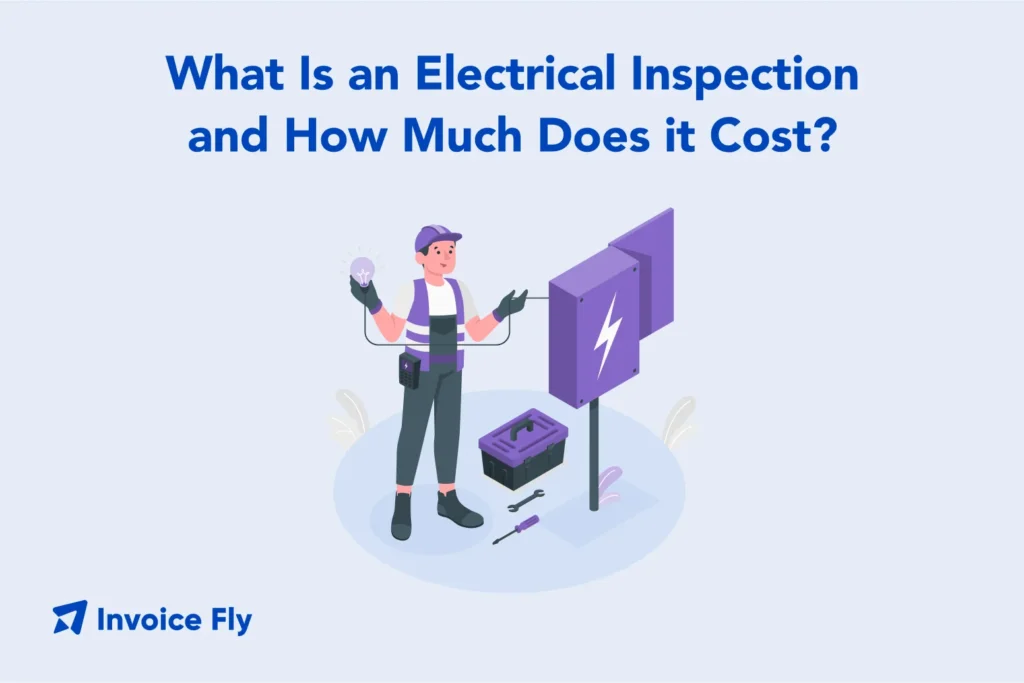
Table of Contents
- What is an Electrical Inspection?
- Why Are Electrical Inspections Important?
- Types of Electrical Inspections
- What Does an Electrical Inspector Look For?
- Average Cost of an Electrical Inspection
- Average Cost of Electrical Repairs
- What Influences the Cost of an Electrical Inspection?
- How to Hire an Electrical Inspector
- Signs You Need an Electrical Inspection
- DIY Electrical Inspection vs. Hiring a Professional
- Stay Safe, Save Money, and Keep the Lights On
- FAQs about Electrical Inspections
An electrical inspection is a thorough review of a building’s electrical systems, wiring, and components to ensure safety, code compliance, and proper functionality. Whether you’re buying a home, upgrading your electrical work, or troubleshooting issues, inspections are a crucial step in preventing fire hazards and avoiding costly mistakes.
Understanding what inspectors look for and the cost of an electrical inspection can save homeowners and businesses time, money, and unnecessary risk.
According to Forbes, the average cost of an electrical inspection in the United States ranges from $75 to $400, depending on property size, age, and complexity.
In this guide, we’ll cover everything you need to know about electrical inspections in 2025, including:
- Residential and commercial inspection checklists
- Cost ranges for inspections
- Hiring advice for choosing a professional inspector
- Common red flags to watch for
- Why inspections matter for safety, compliance, and maintenance
- When to schedule an inspection and how often it should be done
What is an Electrical Inspection?
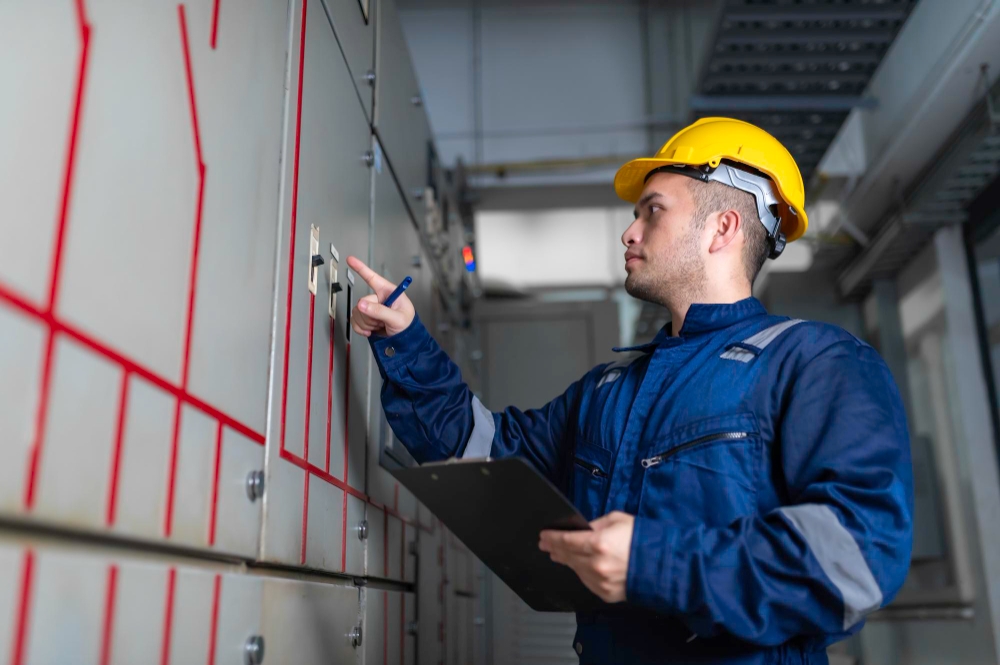
Source: Freepik
An electrical inspection is a professional service performed by a certified electrical inspector to assess the condition and safety of an electrical system. The process includes a detailed review of the electrical panel, wiring, outlets, switches, lighting fixtures, and equipment to identify potential hazards, code violations, or system failures.
Inspections are carried out at various stages: after a new installation, during a renovation, or as part of preventive building maintenance. Inspectors may issue an official inspection certificate or report form, confirming that all electrical components function properly and meet the National Electrical Code (NEC) and local building codes.
For electrical contractors, offering inspection services adds value to customers and can provide peace of mind for homeowners, landlords, and businesses.
Learn more about running your own company in How To Start Your Own Electrical Business: Step-by-Step Guide.

Why Are Electrical Inspections Important?
Electrical inspections are important for multiple reasons:
- Safety: Faulty wiring, overloaded circuits, or outdated panels can lead to shocks or fire hazards. Inspections spot risks before they cause harm.
- Compliance: Inspections confirm that electrical installations meet NEC and local code requirements, reducing liability and ensuring approvals for new construction.
- Preventive maintenance: Small problems, like loose connections or aging outlets, can be fixed before they require expensive repairs.
- Insurance and resale value: Certified inspections are often required for property insurance or before selling a house/building, reassuring buyers of system safety.
Types of Electrical Inspections
Residential / Home Inspections
- General electrical inspection: A visual checklist covering wiring, outlets, lighting fixtures, and breakers.
- Code compliance inspection: A detailed review ensuring installations follow NEC standards. Often required after renovations or new installations.
- Home inspection (part of property sale): A broad house inspection may reveal issues that require a specialist electrical inspection.
See our guide on Estimating Residential Electrical Work for more cost-related details.
Commercial / Building Inspections
- Required for offices, schools, retail shops, and industrial sites.
- Inspectors assess large panels, industrial wiring, backup generators, and specialized equipment.
- Often mandatory for insurance approval or before tenants occupy a building.
What Does an Electrical Inspector Look For?
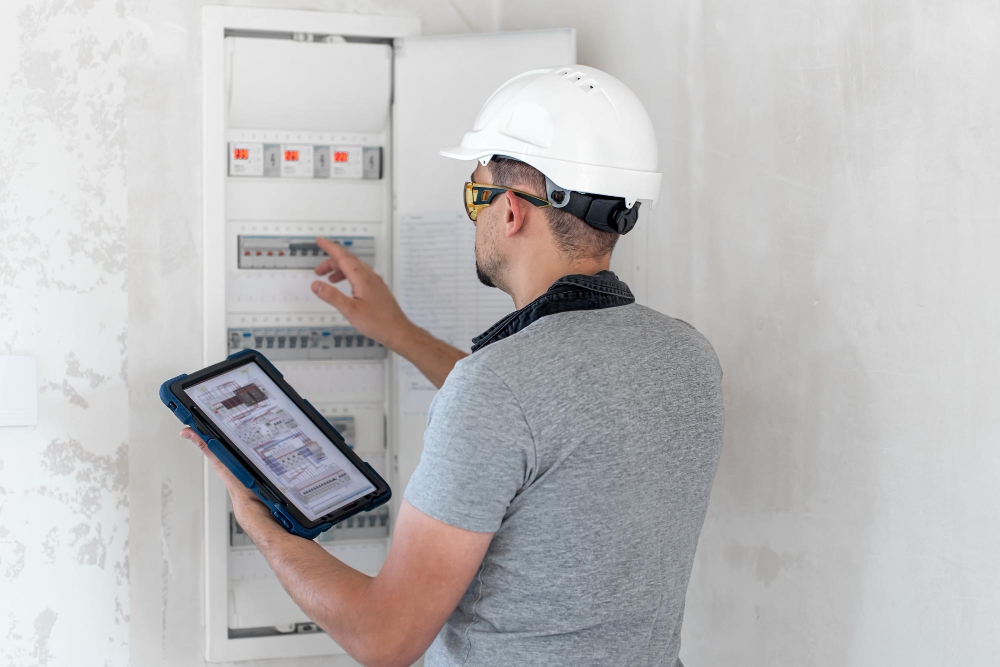
Source: Freepik
One of the most common questions is: what does an electrical inspection include?
Inspectors follow a structured process to ensure nothing is overlooked. A standard home electrical inspection checklist covers the following areas:
- Electric Meter: Inspectors check the service line, meter condition, and connections to confirm they are safe and functioning properly.
- Electrical Panel: They verify correct breaker sizes, accurate labeling, and look for signs of damage such as rust or water intrusion. The panel is one of the most critical parts of the home electrical system.
- Wiring: Inspectors spot-check wiring throughout the house to identify frayed or outdated electrical wiring, improper grounding, or unsafe DIY installations.
- GFCI Outlets: Ground Fault Circuit Interrupters are tested in kitchens, bathrooms, garages, and basements to ensure they function properly and trip when needed.
- Outlets and Lighting Fixtures: A selection of outlets and lighting fixtures are tested to confirm polarity, grounding, and overall safe operation.
For larger properties, such as commercial or industrial sites, the inspection includes an expanded checklist. This may involve reviewing large distribution panels, heavy machinery wiring, rough electrical work during construction, and ensuring all safety stickers, forms, and documentation are up to code.
Here’s a summary table showing what inspectors commonly look for during a home inspection versus a building inspection:
| Area Checked | Home Inspection Includes | Building Inspection Includes |
| Electric Meter | ✔ | ✔ |
| Electrical Panel | ✔ | ✔ (often multiple large panels) |
| Wiring | ✔ (sampled throughout home) | ✔ (industrial machinery and site wiring) |
| GFCI Outlets | ✔ | ✔ (expanded testing in commercial kitchens/labs) |
| General Outlets & Fixtures | ✔ | ✔ (plus specialized equipment) |
| Safety Labels/Forms | Limited | ✔ (stickers, compliance forms, certificates) |
This comprehensive process goes beyond just looking at visible wiring — covering every component necessary to ensure that a home or building’s electrical system is safe, functional, and compliant with the NEC.
Average Cost of an Electrical Inspection
The cost of electrical inspection varies widely depending on the property:
- Residential inspections: $150–$300 on average.
- Commercial or industrial inspections: $300–$500+ depending on equipment, site complexity, and building size.
Factors like older homes, difficult-to-access panels, or the need for detailed testing can increase the price.
For related salary and industry comparisons, see How Much Do Electricians Make? 2025 Salary Guide.
Average Cost of Electrical Repairs
Electrical inspections often reveal issues that require repairs. Average repair costs include:
- Minor repairs (outlets, switches): $75–$150.
- Medium repairs (rewiring circuits, fixture installation): $200–$1,000.
- Major repairs (panel replacement, full rewiring of older homes): $1,500–$2,500+.
Preventive inspections lower long-term costs by addressing small issues early.
What Influences the Cost of an Electrical Inspection?
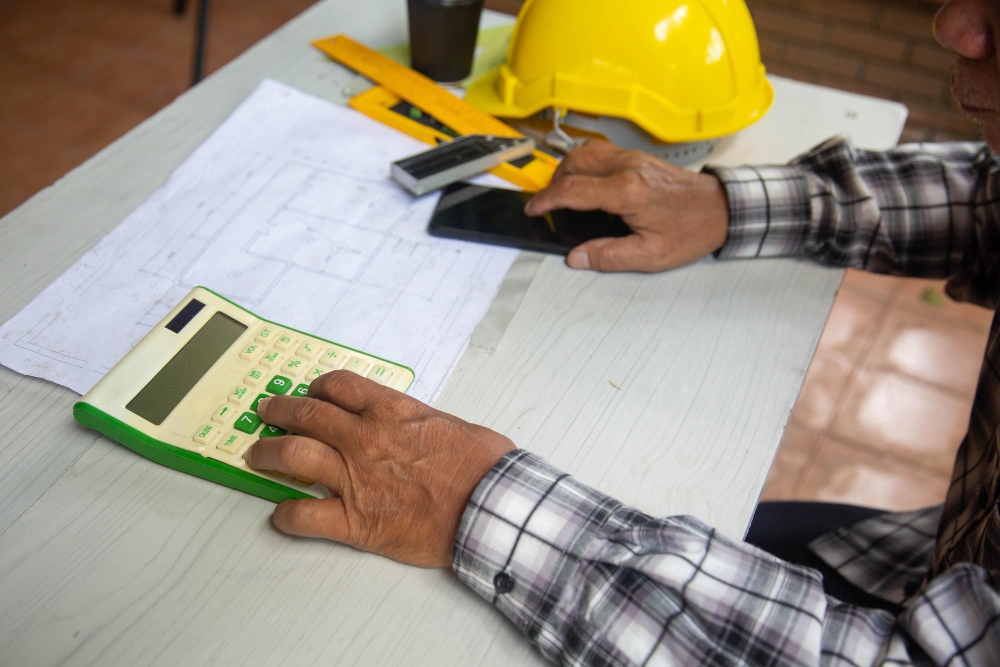
Source: Freepik
Several factors affect inspection costs:
- Inspection type: A basic visual inspection is cheaper than full compliance testing with advanced equipment.
- Age of home/building: Older homes or buildings often require more thorough inspections.
- Size of property: Larger houses, schools, or industrial buildings have more wiring and panels to review.
- Condition of wiring: Heavily worn or unsafe systems increase inspection time and cost.
- Location: Urban inspections often cost more due to demand and permit fees.
- Accessibility: Hidden panels, attic wiring, or blocked equipment require more labor.
How to Hire an Electrical Inspector
When hiring an inspector:
- Contact your municipality or licensing board for certified professionals.
- Verify their license, insurance, and experience.
- Ask for proof of qualifications and whether they follow NEC standards.
- Request a written inspection form or report that details what is covered.
- Compare quotes and ensure you know what’s included in the inspection.
Signs You Need an Electrical Inspection
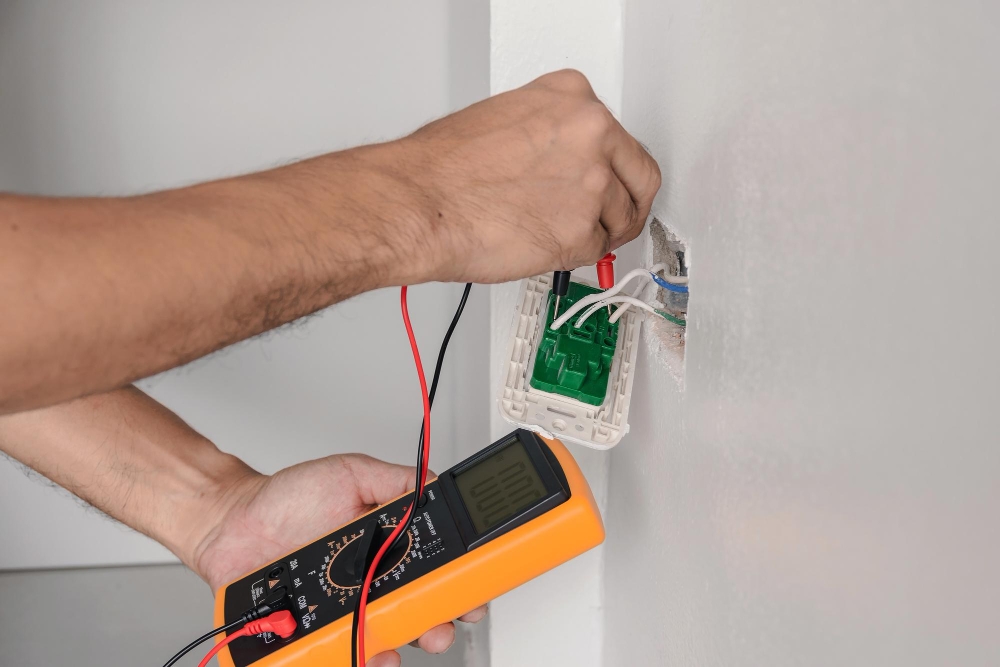
Source: Freepik
Common signs include:
- Frequent breaker trips or flickering lights.
- Burning smells near switches or outlets.
- Outdated, overloaded, or unlabeled electrical panels.
- A recent electrical installation, renovation, or rough electrical work that hasn’t been certified.
- Preventive inspections every 5–10 years, especially for older homes.
DIY Electrical Inspection vs. Hiring a Professional
While homeowners can perform some basic visual checks — such as testing outlets with a plug-in tester, making sure all lights and switches function properly, or looking for visible damage — these efforts only scratch the surface. They are useful for spotting obvious issues but cannot replace the accuracy or authority of a professional inspection.
Certified electrical inspectors, on the other hand, bring years of training, specialized tools, and the ability to issue inspection certificates that prove compliance. They carry out advanced testing of circuits, electrical panels, and safety devices, ensuring that all systems align with NEC standards and local codes. Choosing a professional is the only way to guarantee that your home or building is both safe and legally compliant.
Here’s a quick comparison of what you can do yourself versus what requires a professional:
| Task | DIY Homeowner | Certified Inspector |
| Test outlets with a simple plug-in tester | ✔ | ✔ |
| Check for visible cord or wiring damage | ✔ | ✔ |
| Inspect breaker panel labeling and breaker size | ✖ | ✔ |
| Perform GFCI outlet trip tests with specialized equipment | Limited | ✔ |
| Ensure compliance with NEC and local building codes | ✖ | ✔ |
| Provide official inspection report or safety certificate | ✖ | ✔ |
For tools commonly used during inspections, see 39 Best Electrical Tools for Your Tool Belt & Your Business in 2025.

Stay Safe, Save Money, and Keep the Lights On
An electrical inspection is a small but vital investment. It ensures your home electrical system or building functions properly, complies with safety codes, and avoids hazards. From residential checklists to industrial maintenance reviews, inspections protect property and occupants alike.
Running your own contracting business? Get paid on time with Invoice Fly’s Invoice Maker — it’s free!
FAQs about Electrical Inspections
Not always. While electricians understand electrical installation and wiring, a certified electrical inspector has specialized training and authority. Always hire a licensed inspector.
You’ll receive a detailed inspection report outlining code violations. A licensed electrician must complete necessary repairs, and then a follow-up inspection will confirm compliance.
An outdated or overloaded electrical panel. This signals fire hazards and the need for upgrades.
Yes — it provides peace of mind, ensures compliance, and can prevent long-term fire hazards and repair costs. It’s particularly valuable for older properties.
Every 5–10 years, especially if your property is over 40 years old, after major renovations, or in real-time response to recurring electrical issues.
